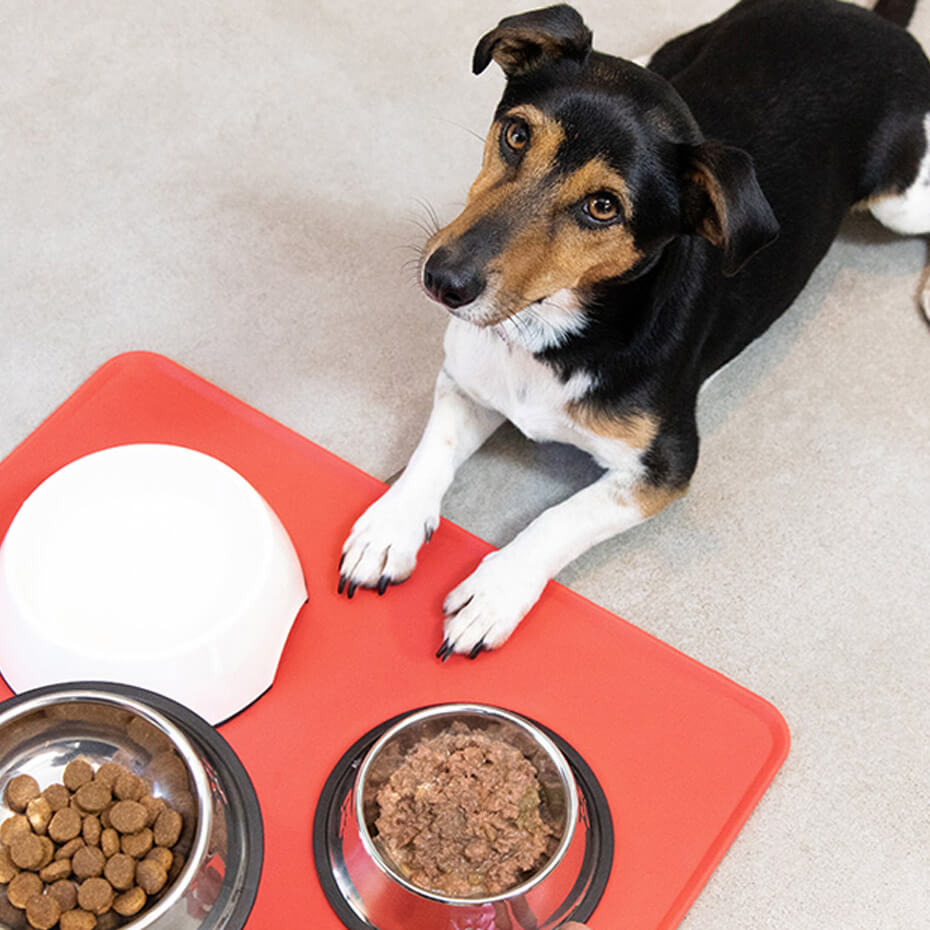
There has been a recent trend towards products and diets which target a specific breed of dog. The idea of feeding a food, which is apparently designed just for your dogs breed, may be very appealing to some owners.
But is breed specific nutrition really the answer?
PUPPIES COME IN ALL SHAPES AND SIZES!
All puppies have an enormous amount of growth to accomplish during a relatively short period of time. The difference between large/giant dogs and smaller sized dogs is the rate at which they grow. Small-size breeds can be considered mature as young as six months but are generally considered to be adults by 12 months, while medium-size dogs attain mature size at approximately 12 to 16 months of age and the large and giant breeds types reach mature adult size between 18 and 36 months of age. It is the growth rate differences that have implications for the type of diet that is fed, the feeding practices that are used and how and what type of exercise can be introduced into a puppy’s life.
High-quality puppy food like PRO PLAN® OPTISTART takes the weight of the dog at maturity into account and the size-based formulas are designed to help dogs of different sizes grow and develop at the rate most appropriate to their fully grown size, regardless of whether they are purebred or mixed breed dogs.
WHAT ABOUT OTHER GENETIC DISORDERS?
Veterinarians and scientists agree that there are genetic differences between breeds which result in a predisposition to certain diseases. For example, it is well known that Beagles are more likely to have hypothyroidism as they age than Chihuahuas and miniature Poodles have more eye problems than Great Danes. However, veterinarians and scientists know that these persistent breed differences are the result of ill-planned breeding and genetic mutation and rarely influenced by nutrition.
Genetic diseases which can be influenced through nutrition include: diabetes, certain gut diseases or insufficiencies, certain skeletal diseases and a few skin diseases but these diseases most often require very specific therapeutic diets which can only be prescribed by a veterinarian. There are some health conditions which can be based on the phenotypic expression of genes and the environment. For example, many small dogs have a predisposition to dental problems because they have too many teeth or have retained puppy teeth and this can be exacerbated by eating habits. The same is true for other bone diseases. Large dogs may be predisposed to osteoarthritis, however, the lifestyle that a dog has will dictate the age at which symptoms may become clinical. As the average age of dogs shifts upwards, the incidence of osteoarthritis continues to increase, regardless of breed.
Skin disease, like gut disease, is a general term which encompasses disease of genetic and environmental origin. There are some dogs which are more predisposed to skin disease than others; however, most skin diseases can manifest in any breed of dog.
Finally, bloat or Gastric Dilatation and Volvulus (GDV) has long been regarded as a disease of certain breeds of dogs; however, new research shows that not only is environment and lifestyle a component of the predisposition of bloat, but also mental well-being. Dogs that are nervous or under stress will be more likely to bloat than “happy” dogs.
Placing dogs in categories based on breeds is easy, convenient and a helpful way to for pet food companies to assist owners in choosing a pet food. However, there is not sufficient clinical data available that supports breed specific nutrition.
Currently veterinarians and nutritionists agree that maintaining a cat or dog in ideal body condition and providing the type of complete and balanced high-quality nutrition that reputable pet food manufacturers offer is the most effective way of keeping your pet happy and healthy for many years to come.
For more information please contact our Purina Pet Care Advice Team here.











